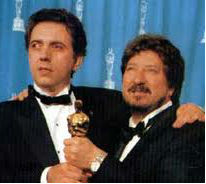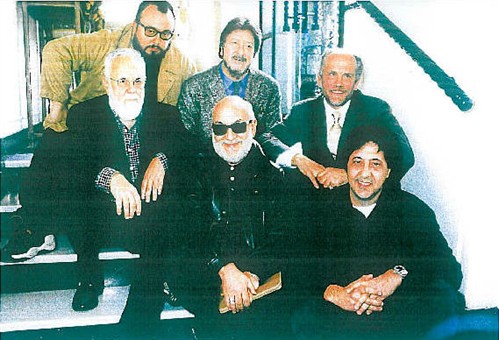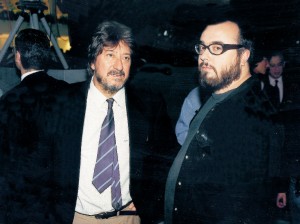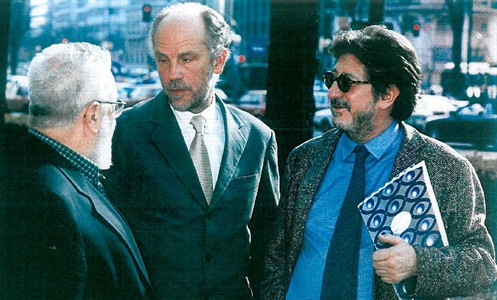
I, like many others, began
producing films because the movies fascinated me. At a very early
age I learned that the producer is the key element that "pulls the
strings." It was toward the end of the 1950s when I learned about
Stanley Kubrick and James B. Harris, Roger Corman and his brother
Gene, François Truffaut and Georges de Beauregard, Robert Bresson
and Anatole Dauman, as well as other director-producer teams that
made the most beautiful movies I'd ever seen in my youth.
In my case, it took me twenty years
to approach Fernando Trueba, Carlos Saura, Álex de la Iglesia,
Bigas Luna and other prominent directors, with whom I produced
films that I have been pleased and satisfied with throughout my
working life.
Movies like "The Year of
enlightenment", "The Mad Monkey", "Belle Époque," "The Girl of Your
Dreams", "Ham, Ham," "The Day of the Beast", "Ay, Carmela!,"
"Commonwealth," "Second Skin", "The Turkish Passion", " Torrente,
the Dumb Arm of the Law" and several others are my favorites.

Developing a harmonious
producer-director relationship is of key importance to design,
develop, shoot, edit and market a film. During these processes,
which can take years, the producer is in charge yet must respect
and rely on the authorship and authority of the director throughout
these stages of production that should lead to the completion of
the film which is their mutual goal. The producer, even when he has
an initiative regarding an idea, plays the role of a coach, a
creative agent but not the creator. A more graphic illustration of
this: the director gives birth to the creature, the movie, while
the producer acts as the midwife; without the midwife, the creature
and the creator are in danger. In my opinion to attain this
delicate balance, the producer must be involved especially in the
pre-production stage: the development of the idea, the script and
choosing the necessary creative and artistic elements to give shape
& form to the film. After that, he should let the director film
following his own criteria and then intervene once again in the
postproduction and marketing stages of the film. Above all, the
public must like it. Because, as Álex de la Iglesia once
categorically stated, "Films that are good are ones the public
likes and the public likes them because they are good."

The film producer must know how to
choose the right film to be made. And, above all, "wrap" the
project with the creative and artistic elements that will make it
attractive to the public. Having done that, nowadays the technical
quality of the film is taken for granted. High quality images and
sound are compulsory these days and do not necessarily represent
added merit to the movie. That the actors should play their roles
adequately is something that can be controlled. However, where
irreparable mistakes can be made is at the time of choosing the
story and the director, the way it is told, the locations and the
magnitude of the production. These decisions, together with the
selection of the cast, are what really determine the final result
and outcome of the film.
Although it is true to say that the
producer must be a good manager, businessman, public relations,
etc., I honestly believe that one can call himself a real producer
if he knows how to anticipate the public's taste. Indeed, a real
PRODUCER has to be one step ahead to produce today what the viewers
will demand tomorrow.
A.V.G. [The audiovisual arts]
